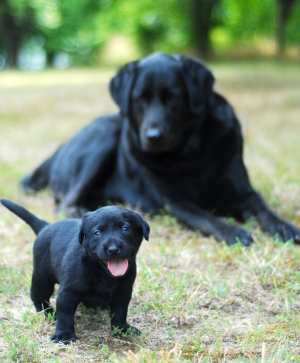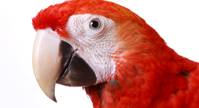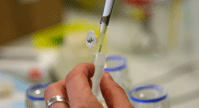Skeletal Dysplasia 2: Dwarfism in the Labrador Retriever
Description:
Canine Skeletal Dysplasia 2 (SD2) is a mild form of disproportionate dwarfism found in Labrador Retrievers. It is generally characterized by one or more body parts being smaller in comparison to the overall size of the animal. Animals with SD2 develop legs that are shorter than their counterparts that not affected, despite a normal body size. In most cases, the front legs are more severely affected than hind legs. This causes an awkward stance and motion.
The SD2 variant is associated with disproportionate dwarfism in Labrador Retrievers and has displayed subtle phenotype affects. Unlike other forms of skeletal dysplasia, SD2 is not associated with any vision or hearing problems. Studies suggest that field or working lines of the Labrador Retrievers are more likely to inherit the SD2 variant.
In most cases the effected males had shoulder heights of less than 55 cm and affected females had shoulder heights of less than 50 cm. This compared to the international breed standards which is 56-57 cm for male dogs and 54-56 cm for females dogs.
Acceptable Sample Types:
Animal Genetics accepts buccal swab, blood, and dewclaw samples for testing. Complimentary sample collection kits are available and can be ordered at test now.
This Test Is Relevant For the Following Breeds:
- Labrador Retriever
Results:
Animal Genetics offers DNA testing for Skeletal Dysplasia 2 or SD2. The genetic test verifies the presence of the SD2 mutated gene and presents results as one of the following:
| SD2/SD2 | Affected | The dog carries two copies of the mutant gene and is homozygous for the Skeletal Dysplasia 2. The dog is affected, and will always pass a copy of the mutated gene to its offspring. |
| n/SD2 | Carrier | Both the normal and mutant copies of the gene detected. Dog is a carrier for the Skeletal Dysplasia 2 mutation, and can pass on a copy of the defective gene to its offspring 50% of the time. |
| n/n | Clear | Dog tested negative for the Skeletal Dysplasia 2 gene mutation, and will not pass on the defective gene to its offspring. |
Submit a Sample for Testing:
To submit a sample for testing please go to test now.
To order a sample collection kit please go to order sample collection kits.
Cost per sample is $45.00. Please see our Canine Fee Schedule for all test rates.










